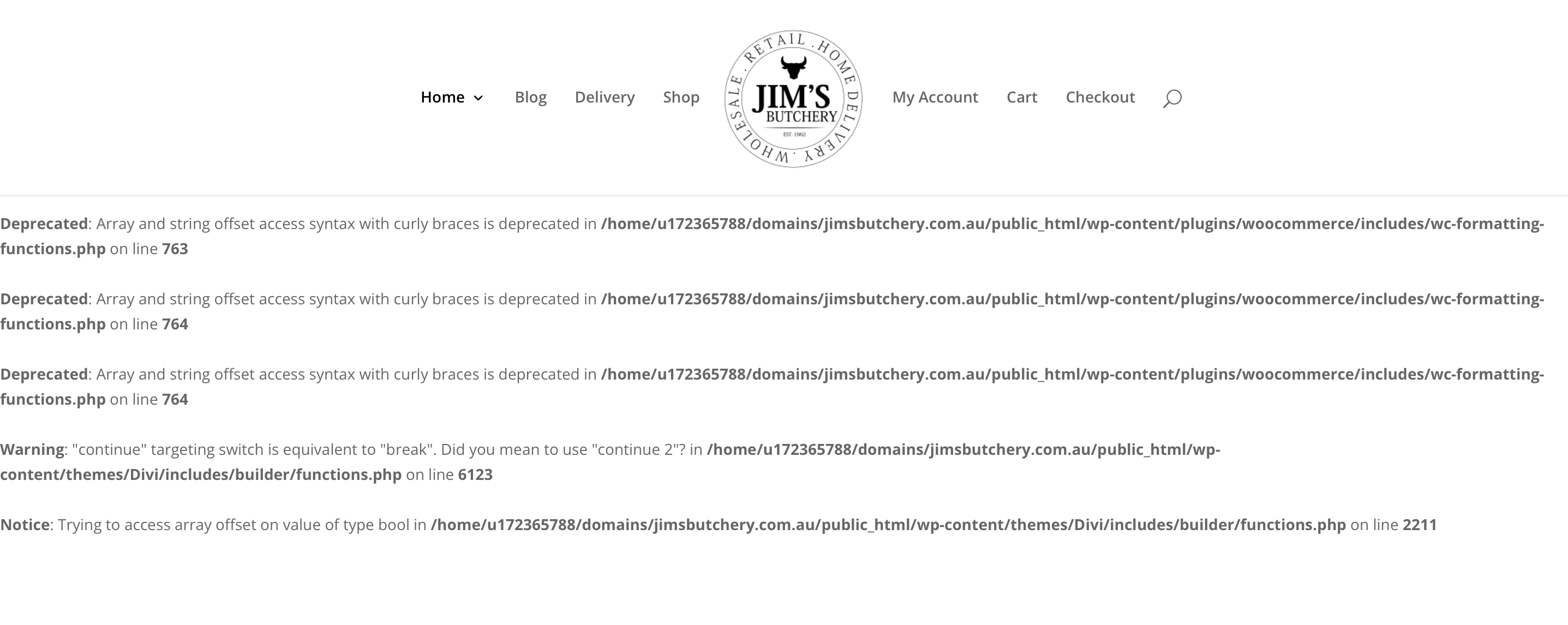2025-12-22 21:27:33
This is what happened to the web when the software industry never spent a moment thinking about long term stability. About users. About usability. About anything other than features and a fast buck.
Among many other failings.
Would be nice to some professionalism in future. One can hope, but I despair.
https://jimsbutchery.com.au
2026-01-23 13:49:21
Five people were arrested following hundreds of investigative hours following 💥 the shooting of Judge Steven Meyer and his wife, Kimberly, in Lafayette Indiana
on Jan. 18.
Both victims were in a stable condition following the attack,
which happened around 2:17 p.m.
The judge was injured on an arm, his wife on her hip.
Raylen Ferguson, 38, from Lexington, Kentucky;
Thomas Moss, 43, from Lafayette
and Blake Smith, 32, from Lafayette,
were all ar…
2026-01-20 14:29:06
In the time I've been offline, I've been doing a lot and feeling a lot more mentally healthy. I've been exploring nomadnet a bit, looking at reticulum. I'm definitely going to go back to my break and being online much less regularly.
I actually totally forgot about the anniversary of the shooting, which is the first time that's happened since... uh... the shooting, I think.
I've definitely realized that, on some level, I've definitely used Mastodon (and formerly Twitter) as a coping mechanism, often in order to deal with the stressful things that I've found out about on Mastodon or Twitter.
But, again, none of those things really change our core job: build community. And that's part of what I've been neglecting, and what I can focus on more when I'm not spending as much time talking to people all over the world indirectly. Like, I can just chat directly with folks and talk about this shit.
Yeah, I do think there's value in this community. I don't think it's really screaming into the void (at least, not most of the time). But I know that I need the balance to be way farther on the side of direct engagement with comrades doing and building.
So that's what I'm gonna go back to. I feel as though it's a good sign that with all the writing about getting shot that I've been doing, and all the thinking about that, that the actual anniversary of the shooting I'm actually just thinking about bread.
And that seems like a good note to leave on. I'm gonna go back to some hacker shit.
2026-01-16 11:36:34
Vor ein paar Tagen habe ich endlich mal Samba auf OpenMediaVault aktiviert und wollte es für Backups der Endgeräte nutzen. Aber ich konnte mich partout nicht anmelden.
Tja …
> Why the login keeps saying access denied? This is more likely caused by two things: […] Out of sync password in between linux and Samba. This is very rare but it has happened. Test in ssh the following [tt]smbpasswd username[/tt] enter password and try and login again
"Very rare", aber in…
2025-12-10 15:37:37
It’s odd that that happened, I’ve removed batteries a long time ago (these laptops have 3 separate batteries), and while there was some corrosion from one of them I cleaned it all up and it worked for several years.
I suspect something in power suppply (which is built into the laptop), so gonna have to take it apart which is annoying to say the least (brittle plastics, flimsy cables).
2026-01-12 20:01:05
Federal immigration officers have started using Renee Good’s death to threaten more U.S. citizens.
A video posted to Reddit showed a screaming ICE agent repeatedly threatening to kill a man who was sitting in his car, asking how he didn’t “learn from what just happened.”
In the two-minute clip, a masked agent wearing a Minnesota Timberwolves hat approached the vehicle already furious, while the driver rolled down his window.
“Stop fucking following us, you are impeding opera…
2026-01-13 15:54:46
I was promised the future would have silver suits and flying cars. Instead it's full of masked men in costumes smashing windows and shooting people. What the hell happened?
2026-02-06 22:09:08
Trump lied
at the National Prayer Breakfast
to take credit for a prisoner freed
who was actually freed during the Obama administration.
https://www.cnn.com/2026/02/06/politics/mariam-ibrahim-release-trump-fact-check?cid=ios_app…
2026-02-06 22:23:02
Following an intense backlash this morning,
the White House has now taken down Trump’s Truth Social repost
of a video showing a racist clip
⚠️depicting the Obamas as apes.
The post was up for 12 hours.
As we reported earlier, a few hours ago the White House had initially tried to brush off the outrage,
defending Trump’s repost as “an internet meme video”.
Politicians from both parties have this morning condemned the post
and urged Trump to remov…
2026-01-02 04:55:44
Darkness draped Crans-Montana,
a ski resort in the Swiss Alps with a reputation for posh luxury.
Le Constellation, however, had few pretensions:
a cavernous venue with TV screens on the top floor to watch sport,
and a basement with low lighting, loud music and a dancefloor.
It attracted a young crowd, including under-18s, mainly from Switzerland and continental Europe,
and early on Thursday morning hundreds thronged the venue to see in 2026.
Many wo…



